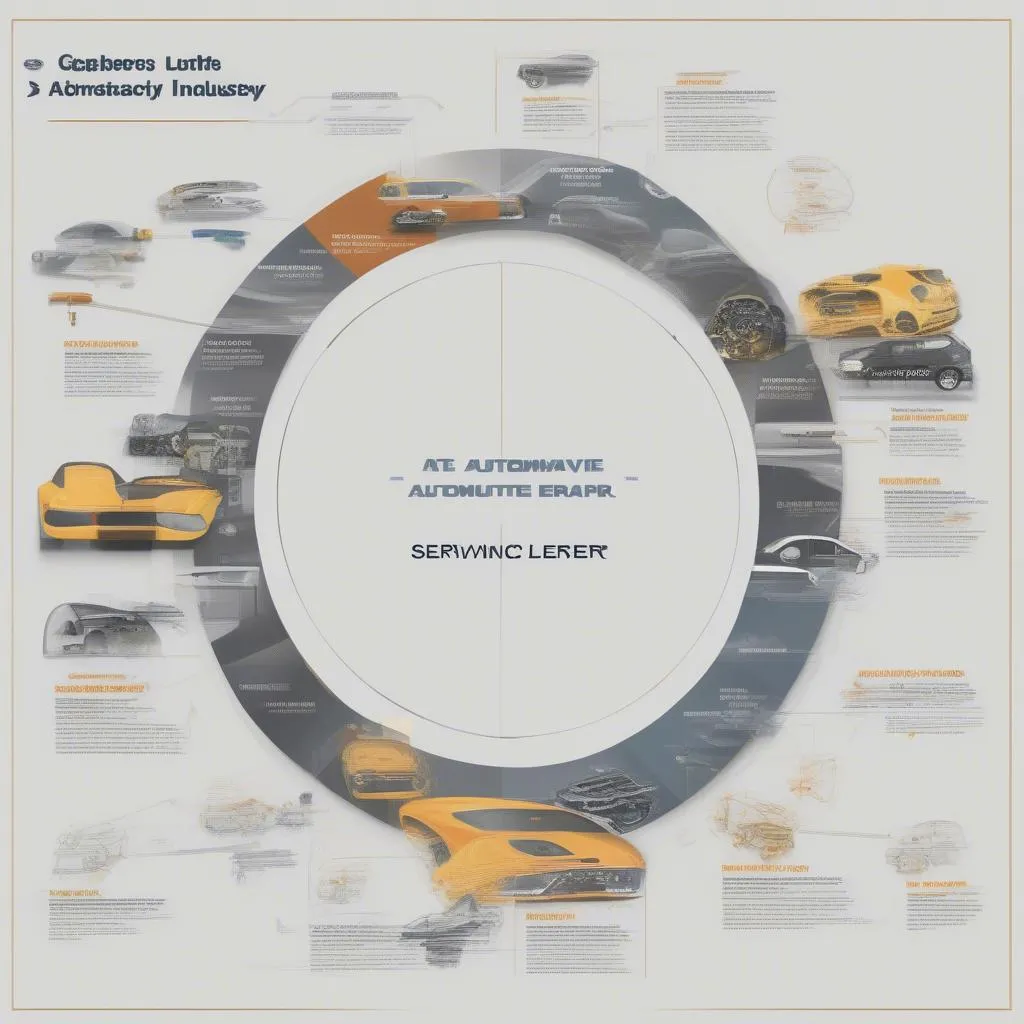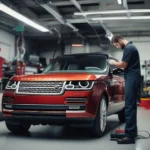Have you ever wondered how to break into the exciting world of automotive technology and repair? Maybe you’re a high school student exploring career options, or perhaps you’re a seasoned professional seeking a new path. No matter your background, understanding career clusters can be a game changer. This guide dives deep into the different career clusters within the automotive industry, offering insights, advice, and potential avenues for your future success.
What Are Career Clusters?
Think of career clusters as major pathways within a specific industry. They bundle related occupations that share common skills, knowledge, and interests. The automotive industry boasts a diverse range of career clusters, from the hands-on world of repair to the cutting-edge field of autonomous vehicles.
Understanding the Automotive Career Clusters
Let’s explore some key automotive career clusters:
1. Automotive Service and Repair
This is the classic “wrench-turning” cluster, involving hands-on work on vehicles. You’ll find yourself diagnosing problems, performing maintenance, and repairing everything from engines to brakes. Think of your local mechanic – they’re a prime example of someone in this cluster.
Sub-clusters within this category might include:
- Engine repair: Specialists in rebuilding engines, diagnosing engine problems, and replacing worn components.
- Transmission repair: Specializing in transmission diagnostics, repairs, and rebuilds.
- Brake repair: Focusing on the complex systems that bring your car to a stop, including calipers, rotors, and pads.
- Electrical system repair: A rapidly evolving area involving diagnosing and fixing electrical problems in vehicles, including battery systems, wiring, and sensors.
- Bodywork and paint: Repairing damaged body panels, aligning frames, and applying paint.
2. Automotive Technology and Engineering
This cluster focuses on the design, development, and implementation of innovative automotive technologies. Think of those engineers who work behind the scenes at car manufacturers, bringing future vehicles to life.
Sub-clusters within this category might include:
- Vehicle design and development: Designing new vehicle models, implementing advanced safety features, and creating the look and feel of future cars.
- Autonomous vehicle engineering: Building and testing systems that allow vehicles to drive themselves, using cutting-edge AI and software.
- Powertrain engineering: Developing and optimizing engines and transmission systems, including hybrid and electric powertrains.
3. Automotive Sales and Marketing
This cluster involves connecting with customers, promoting vehicles, and building relationships. It’s a dynamic field that requires strong communication skills, a passion for automobiles, and a deep understanding of customer needs.
Sub-clusters within this category might include:
- Vehicle sales: Working directly with customers, answering their questions, and closing deals.
- Marketing and advertising: Creating compelling campaigns to promote new vehicles, attract customers, and build brand awareness.
- Customer service: Providing assistance to customers, resolving issues, and ensuring a positive experience.
4. Automotive Parts and Supply Chain
This cluster ensures that vehicles have the parts they need to function smoothly. It involves logistics, sourcing, distribution, and managing the flow of automotive parts and materials.
Sub-clusters within this category might include:
- Parts sourcing: Working with manufacturers to ensure a consistent supply of automotive parts.
- Warehouse management: Organizing and maintaining inventory, ensuring parts are available when needed.
- Distribution logistics: Planning and executing the movement of parts from manufacturers to dealers and repair shops.
How to Choose the Right Career Cluster for You
Here are some tips for finding the right career cluster:
- Self-Assessment: Consider your interests, skills, and values. Are you more hands-on or analytical? Do you enjoy working with people or machines? Do you prefer to work in a team or independently?
- Research and Exploration: Explore the different career clusters in detail. Read articles, watch videos, and speak with professionals in each cluster to gain valuable insights.
- Networking: Connect with people who work in the automotive industry. Attend industry events, join online forums, and reach out to professionals through LinkedIn.
- Education and Training: Invest in the necessary education and training to develop the skills and knowledge required for your chosen career cluster. This might involve pursuing a technical certificate, an associate’s degree, or a bachelor’s degree.
- Get Hands-On Experience: Consider internships, apprenticeships, or part-time jobs to gain real-world experience in your chosen cluster.
FAQ: Common Questions About Career Clusters in the Automotive Industry
Q: What career cluster is best for someone with a strong interest in technology?
A: If you love technology, the Automotive Technology and Engineering cluster is likely a great fit. It’s all about pushing the boundaries of what’s possible with vehicles, from advanced driver-assistance systems to fully autonomous vehicles. You’ll be working at the forefront of innovation!
Q: Is a college degree required for all automotive careers?
A: No, a college degree is not necessarily required for every position within the automotive industry. Many entry-level automotive service and repair roles can be filled with a high school diploma and a vocational training program. However, a degree can open doors to higher-paying positions and more specialized roles.
Q: What career clusters are in high demand?
A: The Automotive Technology and Engineering cluster is in high demand due to the rapid growth of advanced technologies in vehicles. Additionally, automotive service and repair roles will always be necessary as long as vehicles are on the road!
Q: How do I find out more about specific job roles within a cluster?
A: The best way to find out more about specific job roles within a cluster is to do some research. Search for job postings online, read articles about different automotive careers, and connect with professionals in the industry through networking.
Ready to Start Your Journey?
The automotive industry is filled with exciting opportunities, and understanding career clusters can help you navigate your path to success.
Need help getting started with your career journey? Reach out to our team of experts at Diag XCar today! We’re here to provide guidance and support. We also have a wealth of resources on our website to help you explore different career paths, including a comprehensive article on career clusters in the automotive industry.
We’re ready to help you navigate the world of automotive careers – don’t hesitate to reach out!
- WhatsApp: +84767531508



